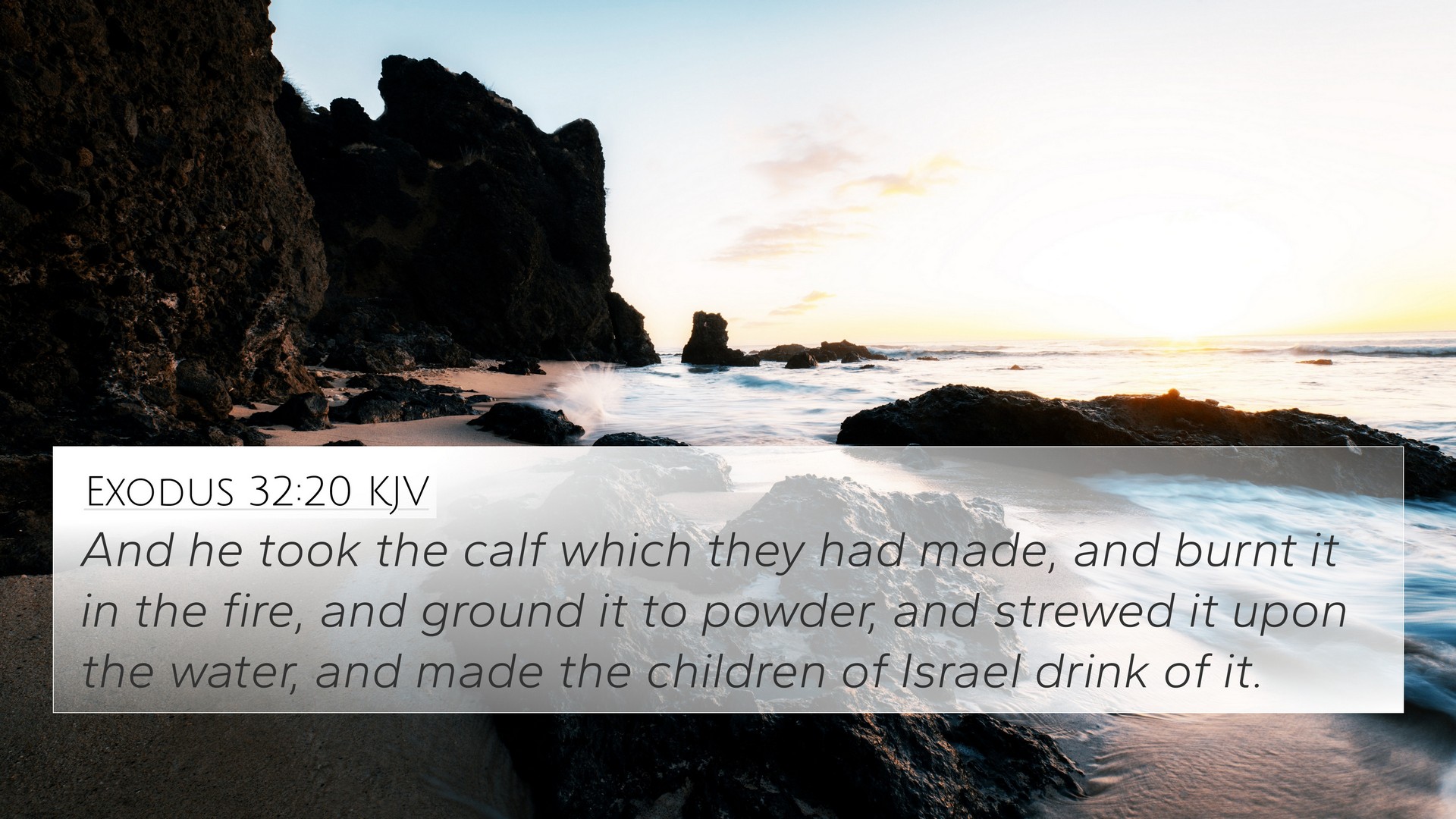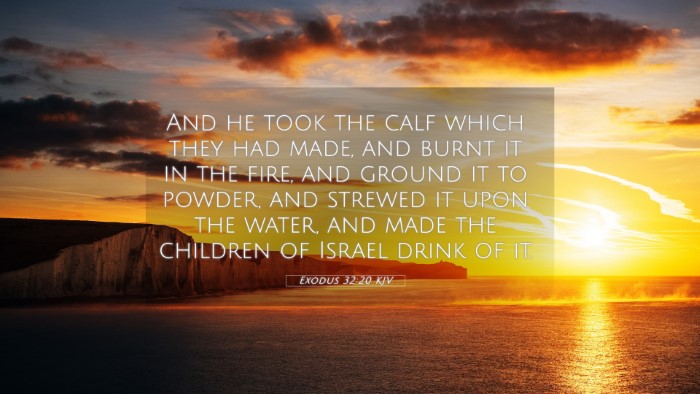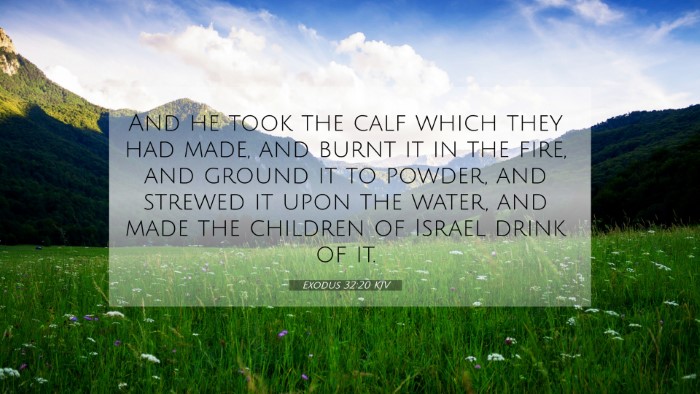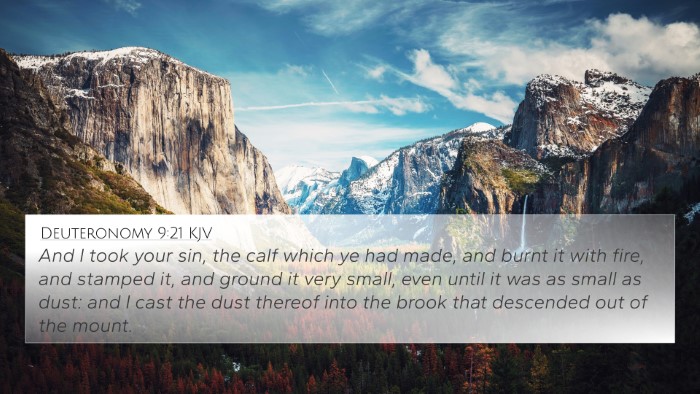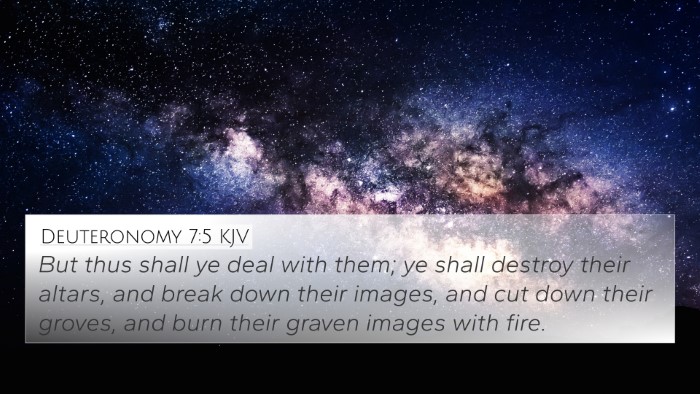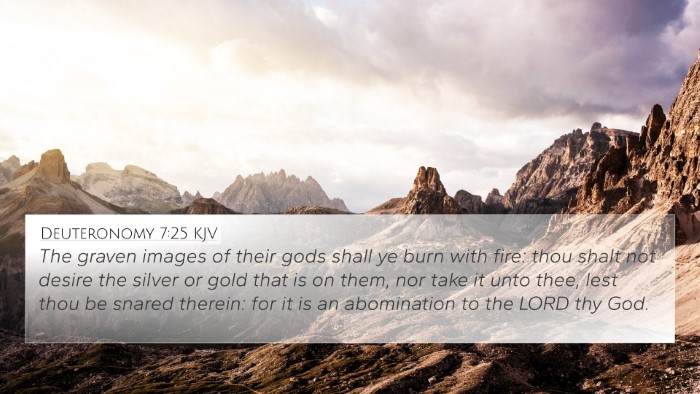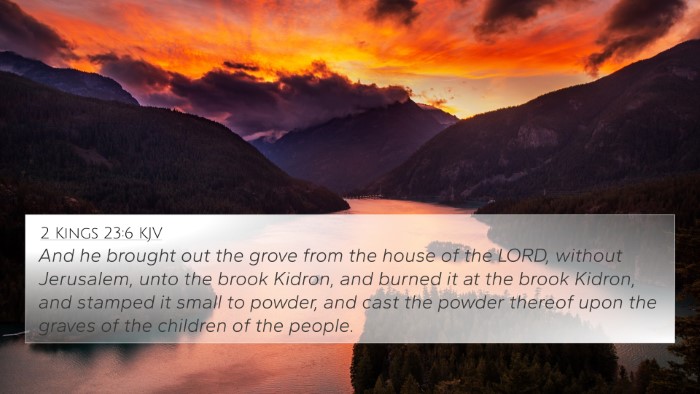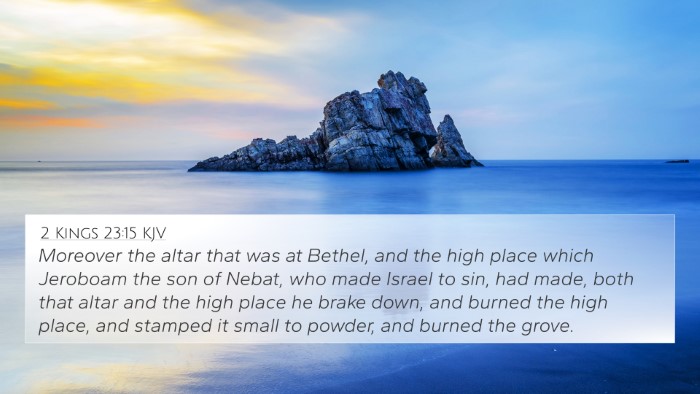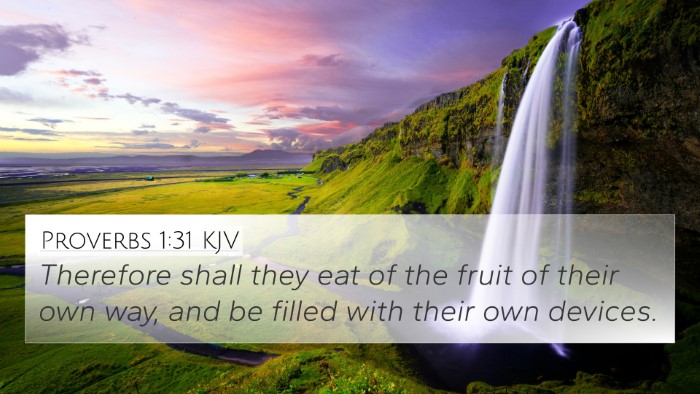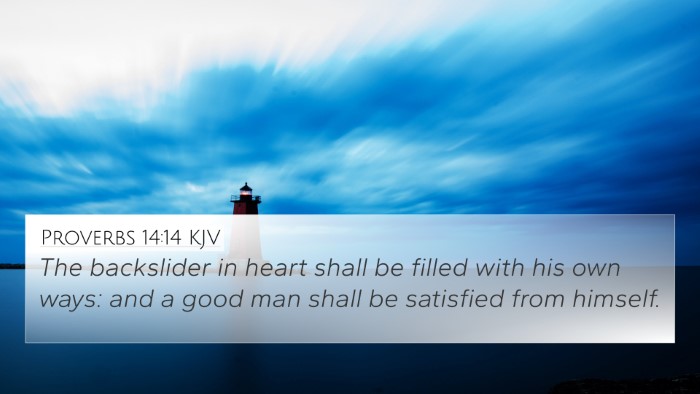Understanding Exodus 32:20
The verse Exodus 32:20 states:
"And he took the calf which they had made, and burnt it in the fire, and ground it to powder, and strawed it upon the waters, and made the children of Israel drink of it."
Summary of the Verse
In this poignant moment, Moses addresses the grievous sin of the Israelites who, in his absence, crafted a golden calf for worship. This act provoked the righteous anger of God and demonstrated the people's pivot away from the covenant they had with Yahweh. Moses, serving as a mediator, takes the idol, symbolizing the folly of their actions, and destroys it before forcing the people to confront their sin by drinking its ashes mixed in water.
Insights from Public Domain Commentaries
Various respected commentators provide insights into this verse:
-
Matthew Henry:
Henry emphasizes the symbolic action of making the people drink the ashes of the calf. This act served as a form of divine judgment, illustrating the bitter consequences of their idolatry. Through this horrific act, Moses sought to instill a strong remembrance of their transgression, warning them against future disobedience.
-
Albert Barnes:
Barnes notes that the detailed destruction of the calf—burning, grinding to powder, and mixing with water—was a deliberate effort to obliterate the object of their misplaced worship. This thoroughness in judgment conveys the seriousness of sin before a holy God and reflects on the concept of accountability among God's people.
-
Adam Clarke:
Clarke expounds on the significance of forcing the Israelites to drink the ashes as a way to expose their folly. It served to remind them of the gravity of their sin and the results of their idolatry; thus, it was not just an act of punishment but also a call to repentance and reflection on their covenant with God.
Thematic Connections and Cross-References
This verse holds numerous thematic connections within Scripture:
- Deuteronomy 9:21: Moses recounts the destruction of the idols and the gravity of Israel's sin.
- Exodus 20:4-5: The commandments against idolatry highlight God's command not to make graven images.
- Numbers 5:17-23: The practice of choosing bitter waters as a means of judgment, reminiscent of Moses’ actions.
- Jeremiah 6:15: The call to repentance where the people are questioned about their shameful acts.
- 1 Corinthians 10:6-7: Paul uses this incident as a warning against idolatry in the Christian community.
- Galatians 6:7: The principle that one reaps what they sow applies strongly to the actions taken by the Israelites.
- Psalm 106:19-20: A reflection on the idolatry of Israel and the folly of exchanging the glory of God for a golden image.
- Revelation 21:8: A reminder of the fate of idolaters in the final judgment, aligning with the seriousness of Israel's actions.
- Ezekiel 14:6: Calls the house of Israel to turn away from their idols, resonating with Moses' actions.
- Hebrews 12:29: Reminds the readers that "our God is a consuming fire," paralleling the destructive power of God against idolatry.
Conclusion
Exodus 32:20 serves as a powerful reminder of the danger of idolatry and the seriousness of sin in the life of God's people. The actions of Moses are not only instructive but also serve as a stark warning about the consequences of turning away from God. By considering this verse in conjunction with related scriptures, one can grasp the full weight of its message and the interconnectedness of God's principles throughout the Bible.
Exploring Tools for Cross-Referencing
To gain deeper insights into how different Bible verses relate to one another, here are some recommended tools for Bible cross-referencing:
- Bible Concordance: A valuable resource to locate where specific words and themes recur throughout Scripture.
- Bible Cross-Reference Guide: Guides that provide thematic associations between verses, enhancing understanding.
- Cross-Reference Bible Study Methods: Techniques and curated lists for studying and connecting biblical texts.
- Bible Reference Resources: Comprehensive indexes that aid in investigating cross-references and thematic studies.
- Bible Chain References: Systems that link associated verses together for deeper study and reflection.
Encouragement for Further Study
If you wish to explore further, you can investigate:
- How to find cross-references in the Bible.
- Understanding links between the Old and New Testament.
- Exploring cross-referenced themes in the Bible for sermon preparation or personal growth.
- Utilizing detailed cross-reference studies among the Gospels for a comprehensive understanding.
This exploration aids not just in theological study but also in personal spiritual growth, as one engages with the depth of God's Word and its relevance to human experience.
